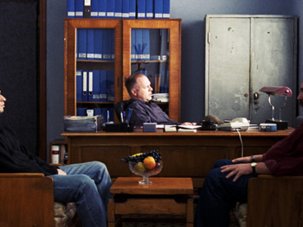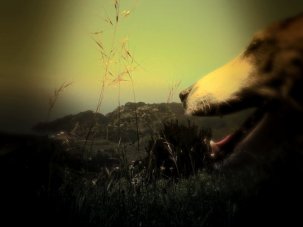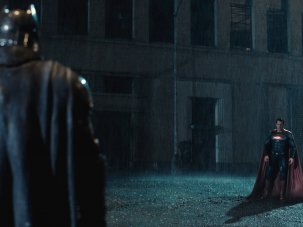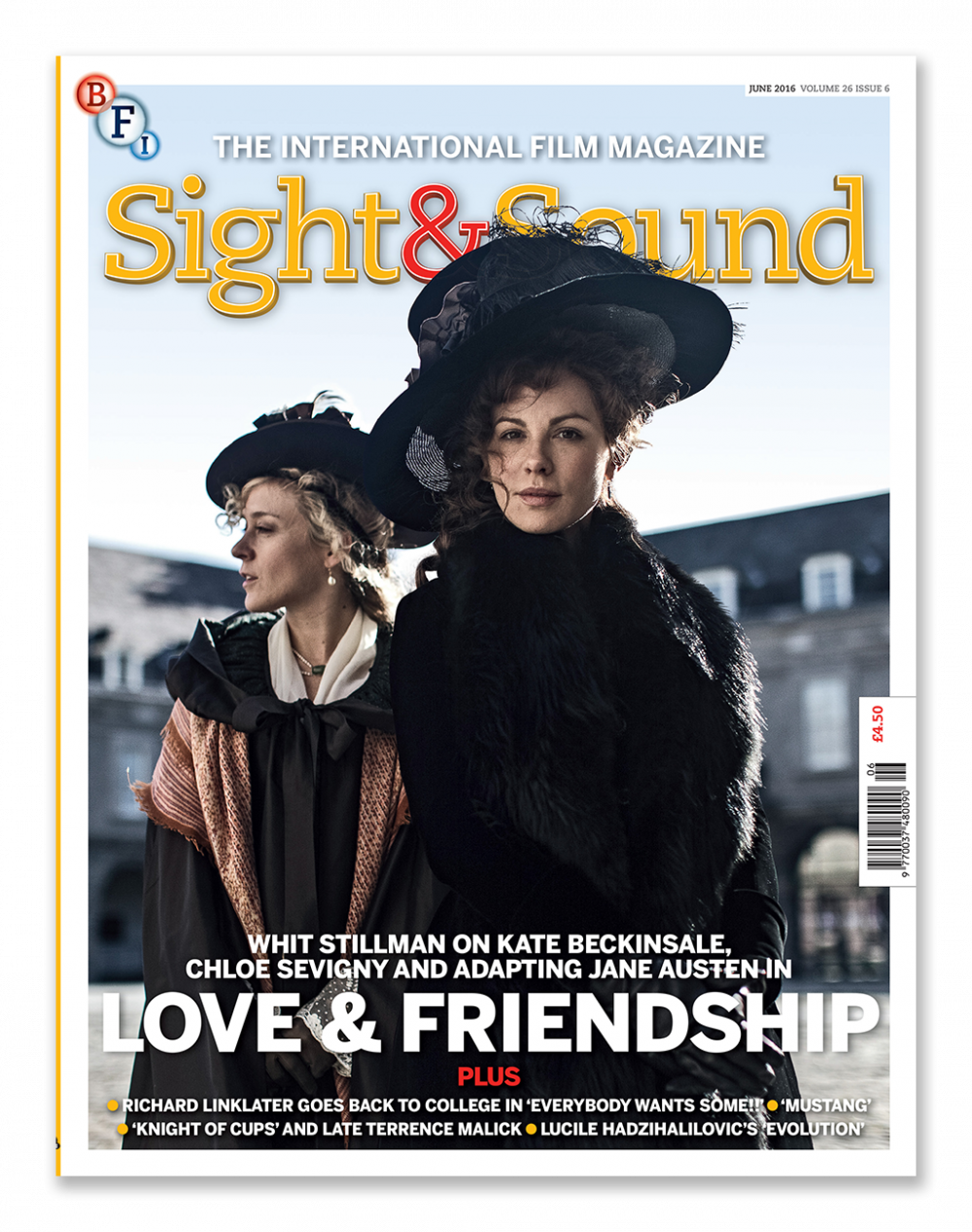
Hold on to your bonnets, for Jane Austen is coming to the screen in a way you’ve never seen her before: downright devious, manipulative and totally unprincipled.
Posted to subscribers and available digitally 29 April
→ Buy a single print issue
→ Access the digital edition
→
On UK newsstands 3 May
Whit Stillman’s gloriously acid Love & Friendship reunites Kate Beckinsale and Chloë Sevigny, some 18 years after their previous Stillman double act in The Last Days of Disco. Beckinsale’s scheming widow Lady Susan is the delightful viper at the heart of this comedy of romantic entanglements. In our extensive cover interview, Stillman talks about the enduring appeal of Austen, adapting an epistolary novel but abandoning the format and working with Beckinsale, Sevigny and his great ensemble cast. He also roves over his career since his 1990 debut Metropolitan, discussing the art of editing, making a pilot for Amazon and directing an episode of the most un-Stillman-like TV series Homicide: Life on the Streets.
In our other features, Deniz Gamze Ergüven discusses her debut feature Mustang, a modern fairytale about five sisters in rural Turkey; Geoff Andrew looks back on a decade of masterful Romanian cinema, finding that with Radu Jude’s latest film Aferim! it’s still as inventive as ever; Lucile Hadzihalilovic talks about her surreal coming-of-age fantasy Evolution, 11 years in the making; Kent Jones muses over late Terrence Malick films; Jeremy Saulnier delves into his savvy thriller Green Room; and we explore Kathleen Collins’s overlooked 1982 indie gem Losing Ground, which explores issues of class, race and gender with humour and a lightness of touch.
Finally, we couldn’t help but use Richard Linklater’s portrait of Texan university life Everybody Wants Some!! as an excuse to reflect on the larger-than-life genre of American college movies that stretches back to Harold Lloyd and Buster Keaton.
Elsewhere in this month’s issue, we have reviews of every new UK cinema release, including Laurie Anderson’s Heart of a Dog, an essay about death and her terrier Lolabelle, Stephen Frears and Meryl Streep’s Florence Foster Jenkins and Ben River’s Paul Bowles-inspired The Sky Trembles and the Earth Is Afraid and the Two Eyes Are Not Brothers.
Our Wide Angle section profiles one of the UK’s most important avant-garde filmmakers, Malcolm Le Grice; takes a cosmic trip courtesy of 1925 silent German documentary Wonder of Creation; uncovers the history of amateur British female filmmakers; and more.
Our Home Entertainment section hails a new 4K restoration of Kurosawa Akira’s King Lear adaptation Ran, and the long-awaited release of Edward Yang’s 1991 masterpiece A Brighter Summer Day, as well as selecting some of the most exciting new DVD and Blu-ray releases.
Actresses take over our books section this month with reviews of biographies of Meryl Streep and Elizabeth Taylor, plus a timely study of freelance actresses and the power they possessed in the Hollywood studio system.
We say farewell with our endings column, exploring Tilda Swinton’s silent gaze to the camera at the close of Sally Potter’s Orlando.
Features
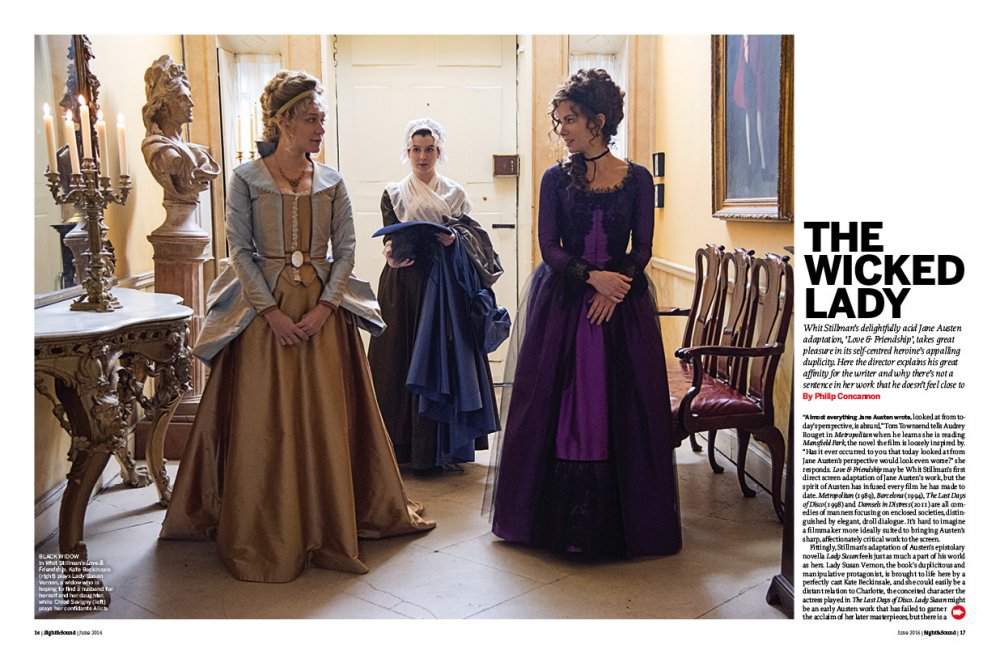
The Wicked Lady
Whit Stillman’s delightfully acid Jane Austen adaptation, Love & Friendship, takes great pleasure in its self-centred heroine’s appalling duplicity. Here the director explains his great affinity for the writer and why there’s not a sentence in her work that he doesn’t feel close to. By Philip Concannon.
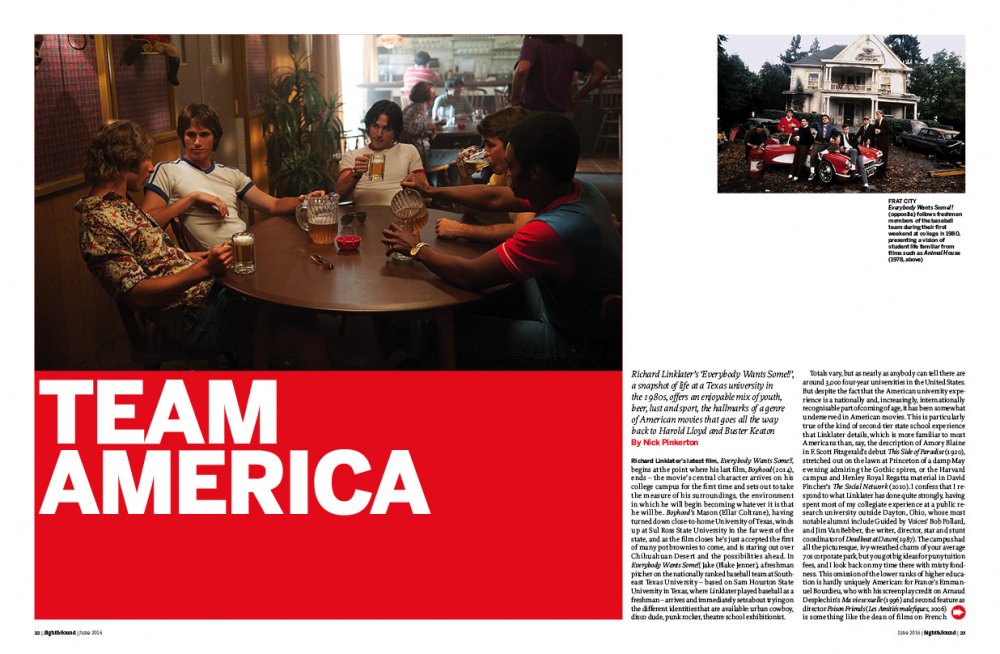
Team America
Richard Linklater’s Everybody Wants Some!!, a snapshot of life at a Texas university in the 1980s, offers an enjoyable mix of youth, beer, lust and sport, the hallmarks of a genre of American movies that goes all the way back to Harold Lloyd and Buster Keaton. By Nick Pinkerton.
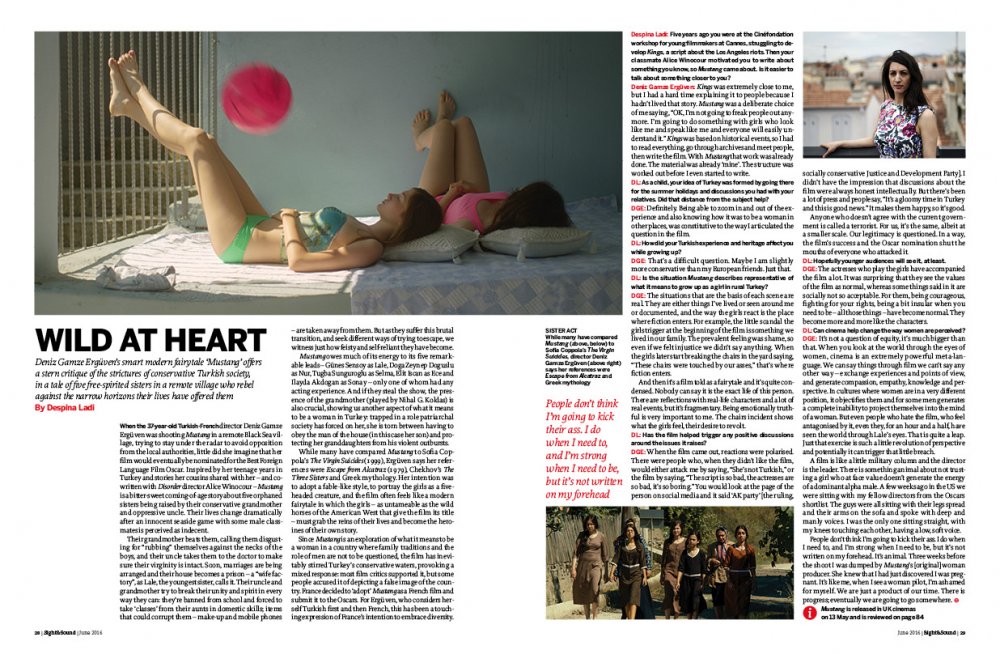
Wild at Heart
Deniz Gamze Ergüven’s smart modern fairytale Mustang offers a stern critique of the strictures of conservative Turkish society, in a tale of five free-spirited sisters in a remote village who rebel against the narrow horizons their lives have offered them. By Despina Ladi.
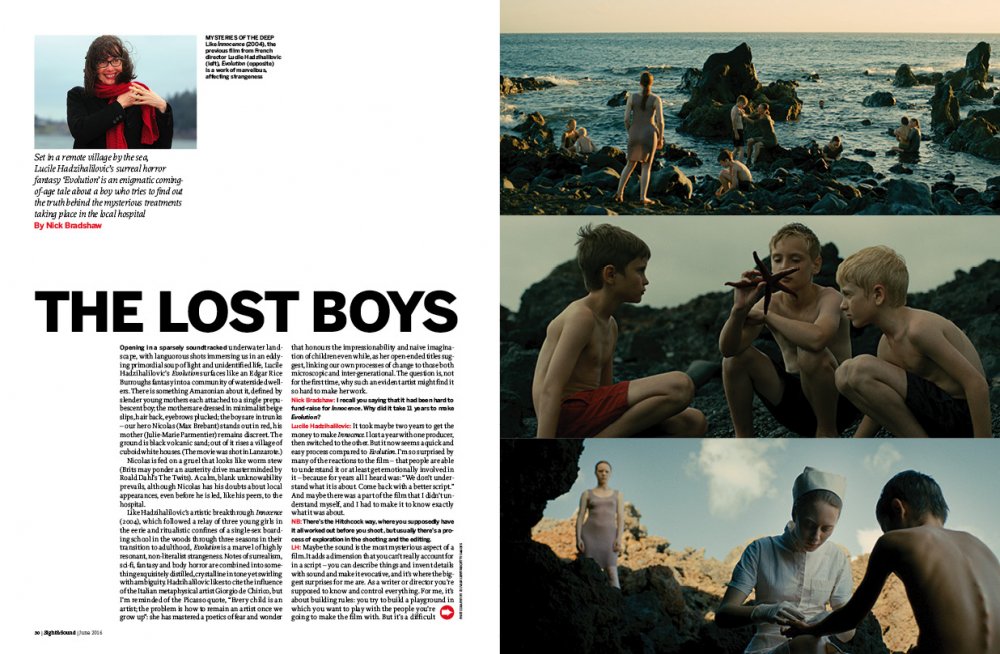
The Lost Boys
Set in a remote village by the sea, Lucile Hadzihalilovic’s surreal horror fantasy Evolution is an enigmatic coming-of-age tale about a boy who tries to find out the truth behind the mysterious treatments taking place in the local hospital. By Nick Bradshaw.
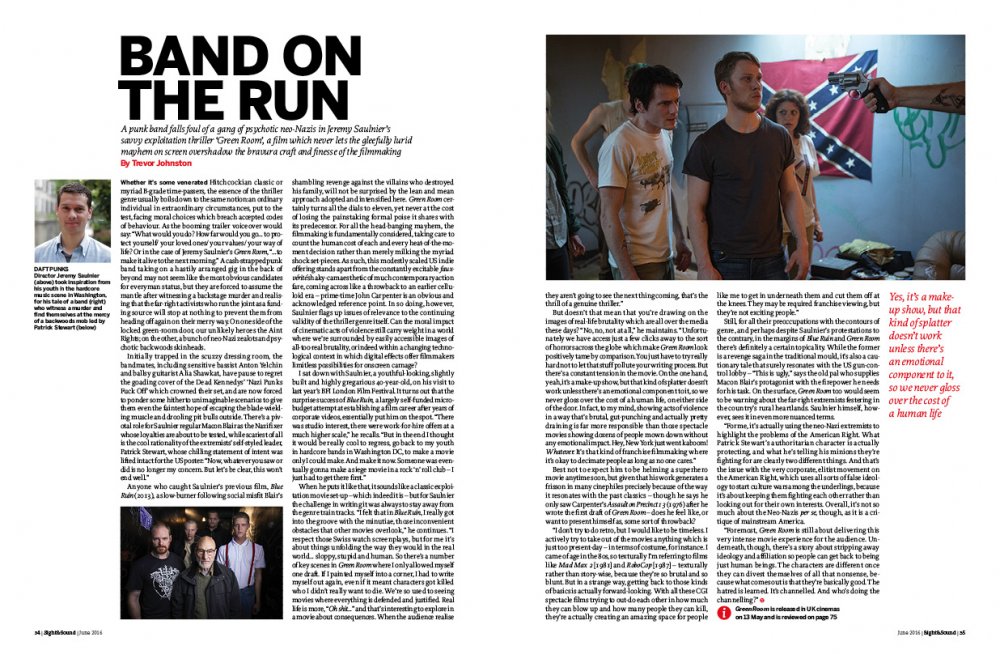
Band on the Run
A punk band falls foul of a gang of psychotic neo-Nazis in Jeremy Saulnier’s savvy exploitation thriller Green Room, a film which never lets the gleefully lurid mayhem on screen overshadow the bravura craft and finesse of the filmmaking. By Trevor Johnston.
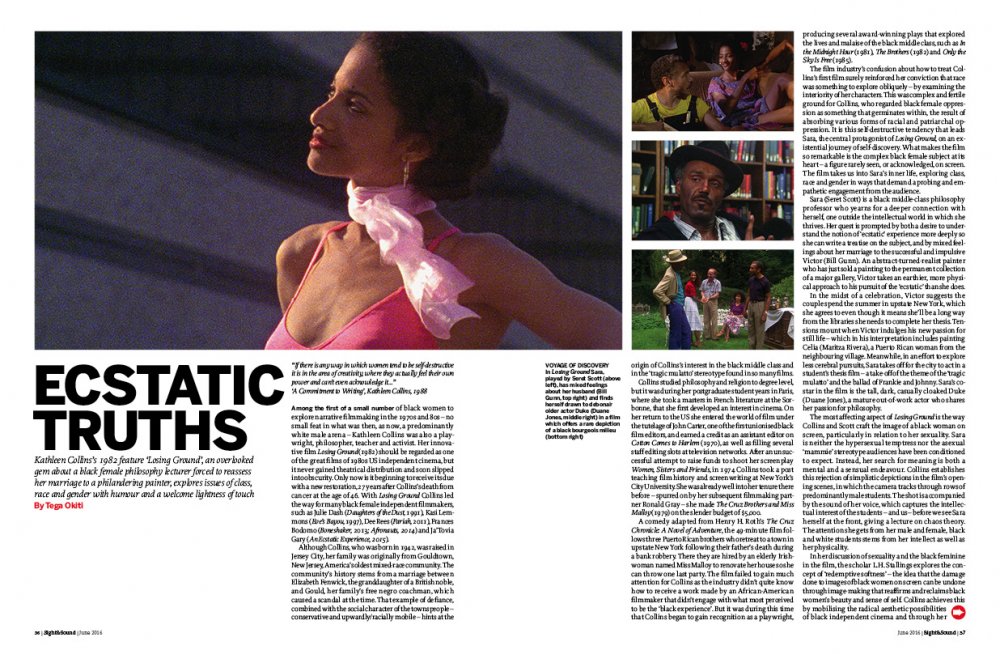
Ecstatic Truths
Kathleen Collins’s 1982 feature Losing Ground, an overlooked gem about a black female philosophy lecturer forced to reassess her marriage to a philandering painter, explores issues of class, race and gender with humour and a welcome lightness of touch. By Tega Okiti.
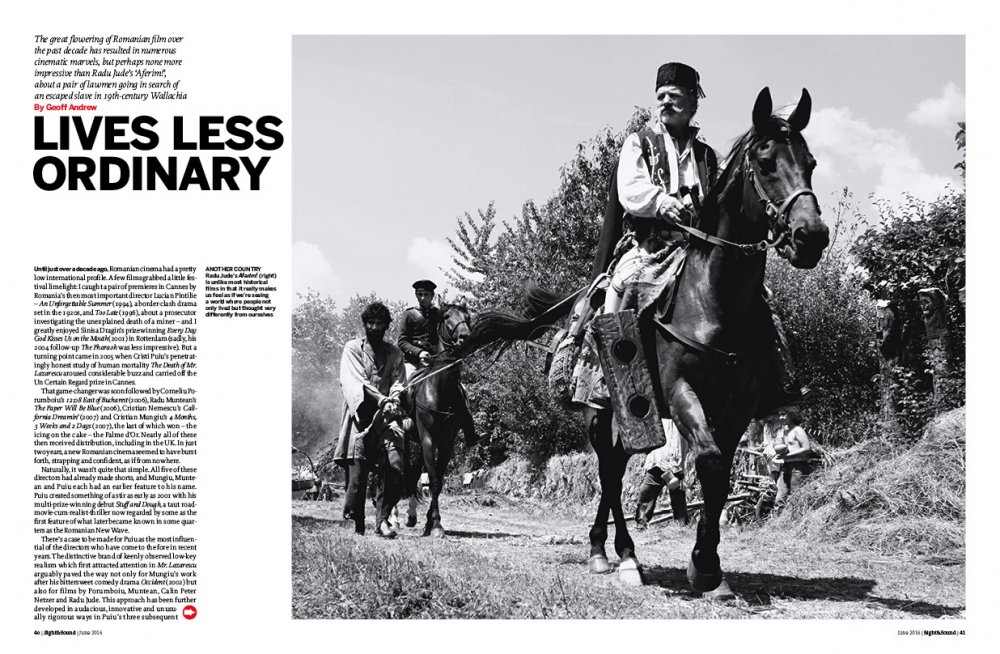
Lives Less Ordinary
The great flowering of Romanian film over the past decade has resulted in numerous cinematic marvels, but perhaps none more impressive than Radu Jude’s Aferim!, about a pair of lawmen going in search of an escaped slave in 19th-century Wallachia. By Geoff Andrew.
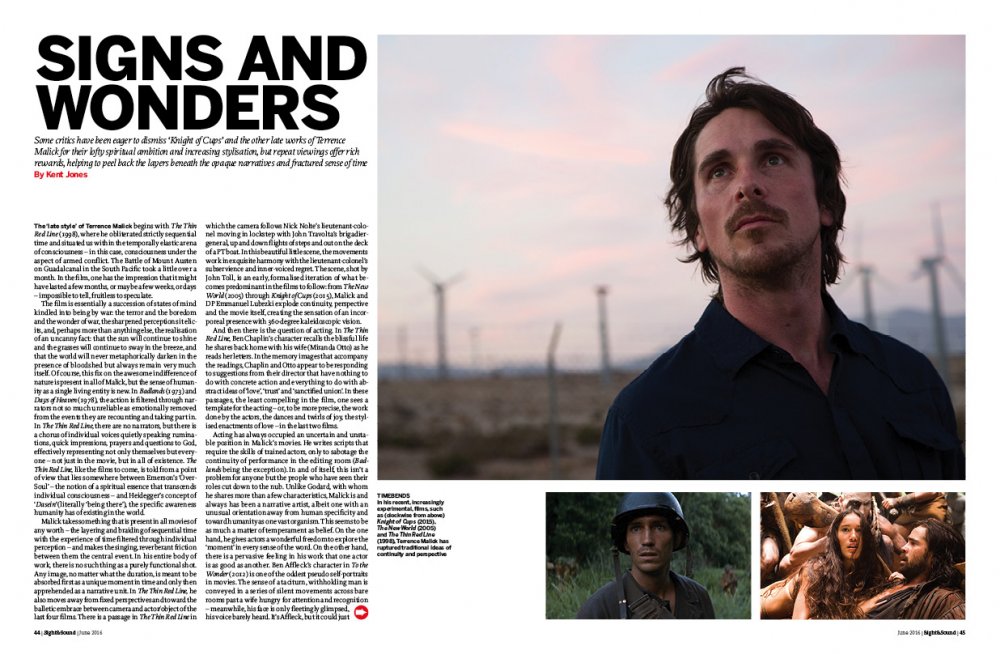
Signs and Wonders
Some critics have been eager to dismiss Knight of Cups and the other late works of Terrence Malick for their lofty spiritual ambition and increasing stylisation, but repeat viewings offer rich rewards, helping to peel back the layers beneath the opaque narratives and fractured sense of time. By Kent Jones.
Editorial
Abominable showmen
Rushes

In the frame: Club class
There’s no doubt that this year’s Cannes offers a formidable roster of talent, but the festival needs to do more to foster inclusivity. By Nick Bradshaw.
Listomania: War satires
Object lesson: Case sensitive
In movies all baggage is emotional, signalling self-sufficiency, insecurity, availability – or simply that you can afford Louis Vuitton. By Hannah McGill.
The five key…: Jane Austen adaptations
Her understated, ironic romances have been not just a godsend for the movie industry but almost a movie industry in themselves. By Simran Hans.
Dispatches: Body heat
Channing Tatum has always been comfortable with his onscreen physicality – he’s the Jane Russell of modern movies. By Mark Cousins.
The Industry
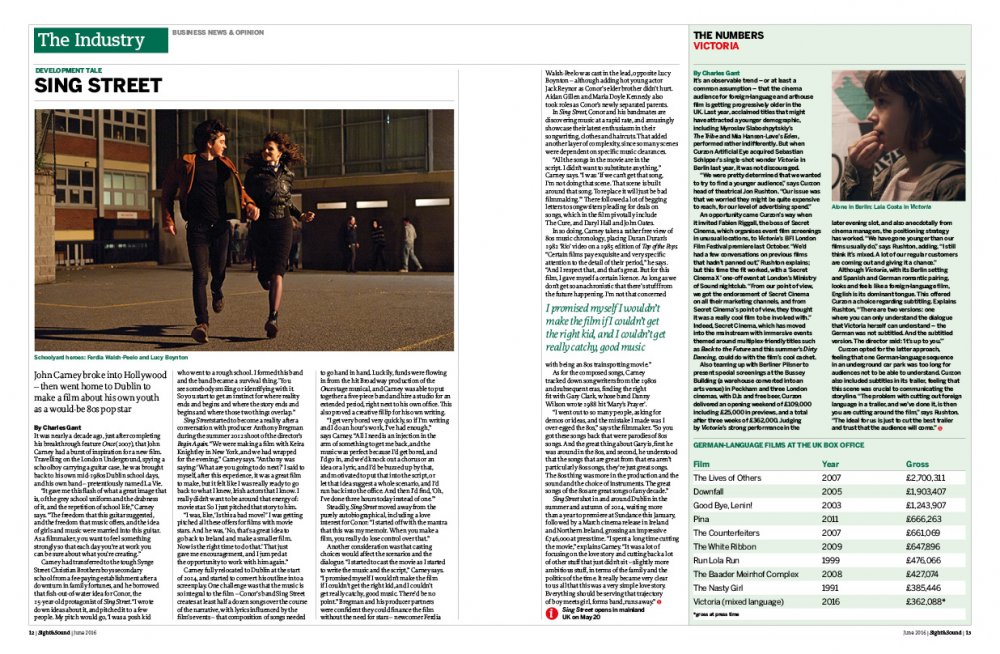
Development tale: Sing Street
John Carney broke into Hollywood – then went home to Dublin to make a film about his own youth as a would-be 80s pop star. By Charles Gant.
The numbers
Victoria and German-language films at the UK box office. By Charles Gant.
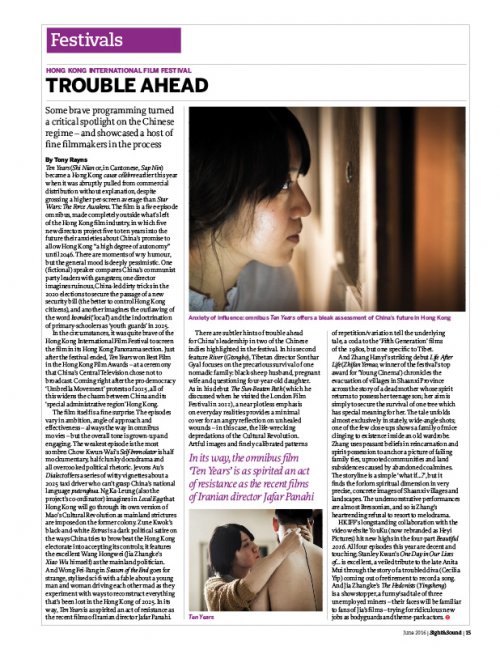
Festivals
Trouble ahead: Hong Kong International Film Festival
Some brave programming turned a critical spotlight on the Chinese regime – and showcased a host of fine filmmakers in the process. By Tony Rayns.
Wide Angle

Preview: The rules of abstraction
After 50 years redefining what film can be, Malcolm Le Grice is established as one of the UK’s most important avant-garde filmmakers. By Simon Payne.
Soundings: Indian summer
Nazia Hassan was the queen of playback singers in the disco era – and the closest Bollywood ever got to Donna Summer. By Geeta Dayal.
Primal screen: the world of silent cinema
A German documentary about space was taking audiences on a cosmic trip more than 40 years before Kubrick. By Bryony Dixon.
Preview: Path of most resistance
Laura Mulvey and Peter Wollen showed that films could be a vehicle for theoretical enquiry every bit as effective as writing. By Oliver Fuke.
Archive: Cherchez les femmes
A project to uncover the history of amateur filmmaking by women in Britain has turned up some unexpected gems. By Roz Cranston.
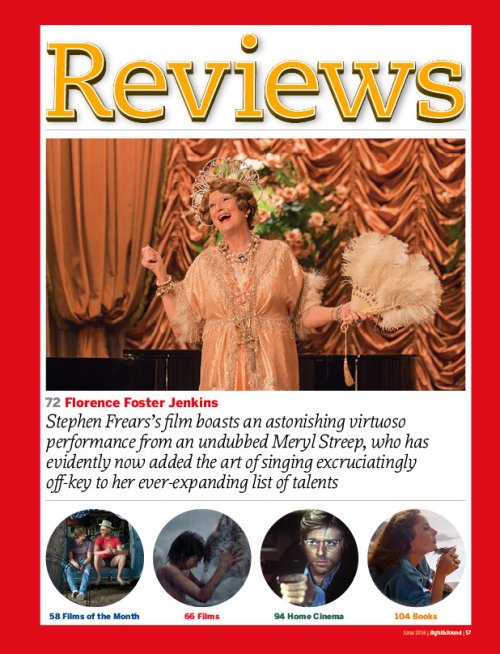
Our Reviews section
Reviews
Films of the month
Arabian Nights: Volume Three – The Enchanted One
Everybody Wants Some!!
Heart of a Dog
The Sky Trembles and the Earth Is Afraid and the Two Eyes Are Not Brothers
plus reviews of
Batman v Superman: Dawn of Justice
Breaking the Bank
Cabin Fever
The Call Up
Chicken
Creature Designers: The Frankenstein Complex
Criminal
The Daughter
Departure
Evolution
Florence Foster Jenkins
Friend Request
Golden Years
Green Room
Hardcore Henry
Hard Tide
The Huntsman: Winter’s War
I Saw the Light
Jane Got a Gun
Journey to the Shore
The Jungle Book
Knight of Cups
Love & Friendship
Mustang
My Big Fat Greek Wedding 2
Our Kind of Traitor
Race
Robinson Crusoe
The Seventh Fire
Sing Street
Streetdance Family
Suburra
The Sweeney: Paris
These Final Hours
Troublemakers
Truman
The Trust
Home Cinema features
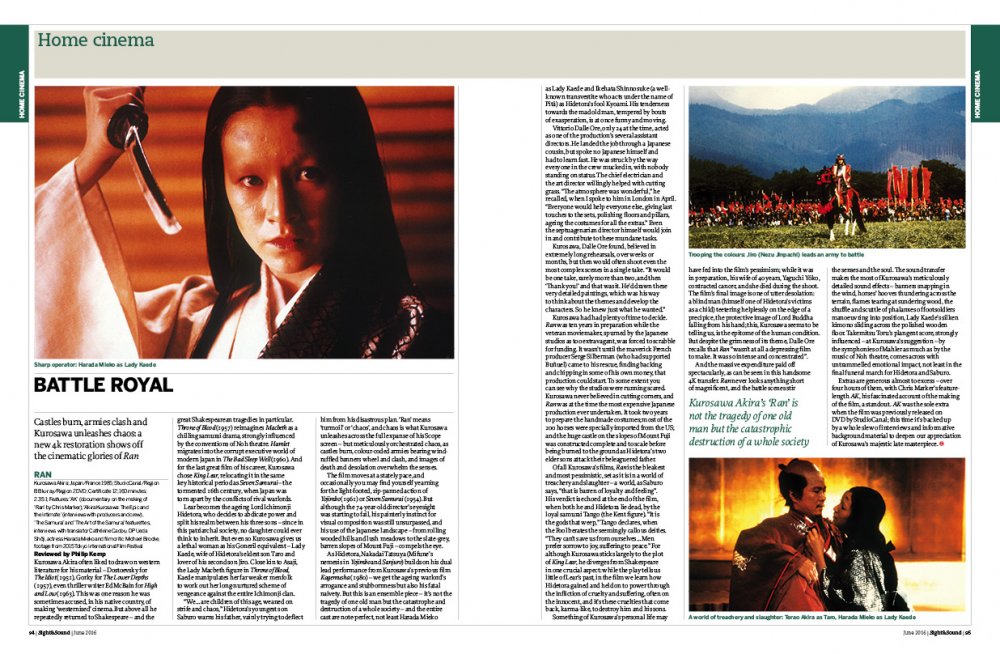
Our Home Cinema section
Battle royale: Ran
Castles burn, armies clash and Kurosawa unleashes chaos: a new 4k restoration shows off the cinematic glories of Ran. By Philip Kemp.
Rediscovery: Symptoms
Odd goings-on, an old dark house and a touch of Norman Bates… José Ramón Larraz’s film builds chills among the horror tropes. By Kim Newman.
Revival: A Brighter Summer Day
Edward Yang’s teens-in-tumult drama takes place against the backdrop of a country that is itself in the throes of adolescence. By Nick Pinkerton.
Lost and found: Long Shot
A sharp, funny look at the lot of the independent filmmaker is enlivened by cameos from a who’s who of industry figures. By Dylan Cave.
plus reviews of
Black Widow
British ‘Teenager’ Films
Films Starring Marion Davies
Eureka
Horse Money
Three Films by Spike Lee
The Ninth Configuration
Pieces
A Poem Is a Naked Person
Speedy
Spring Meeting
Three Days of the Condor
Television
Nature Boy
A Picture of Katherine Mansfield
Trapped
Books

Freelance Women in the Hollywood Studio System by Emily Carman (University of Texas Press) reviewed by Isabel Stevens
The Rhapsodes: How 1940s Critics Changed American Film Culture by David Bordwell (University of Chicago Press) reviewed by Nick Pinkerton
Elizabeth Taylor: A Private Life for Public Consumption by Ellis Cashmore (Bloomsbury Academic) reviewed by Simon McCallum
Her Again: Becoming Meryl Streep by Michael Schulman (Faber & Faber) reviewed by Dan Callahan
Letters
Filmmakers’ aspect-ratio depredations
Savouring films, solo
Remystifying the Turin Shroud
The Big Short’s illuminations
Straight facts on Westbound
A provoked teacher writes
Endings
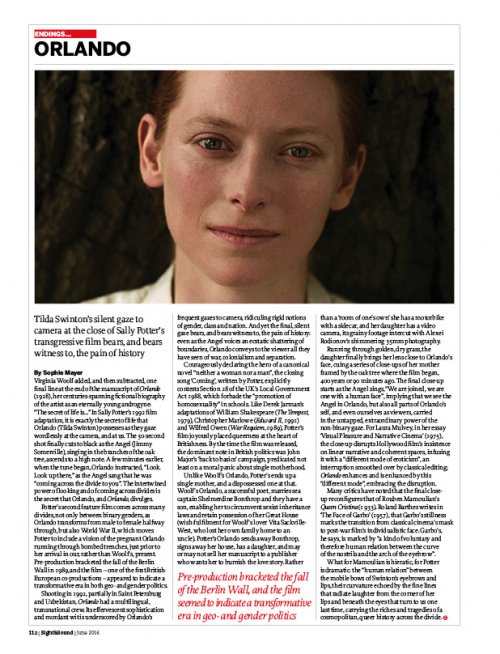
Our Endings section
Orlando
Tilda Swinton’s silent gaze to camera at the close of Sally Potter’s transgressive film bears, and bears witness to, the pain of history. By Sophie Mayer.
Further reading
-
The Digital Edition and Archive quick link
Log in here to your digital edition and archive subscription, take a look at the packages on offer and buy a subscription.




